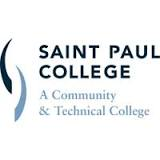What do they do?
Operate or tend equipment such as cooling and freezing units, refrigerators, batch freezers, and freezing tunnels, to cool or freeze products, food, blood plasma, and chemicals.
Also known as:
Certified Refrigeration Operator, Compressor Operator, Engine Room Operator, Freezer Operator, Freezer Person, Ice Cream Maker, Machine Operator, Maintenance Mechanic, Refrigeration Operator, Refrigeration Technician
-
1.3%
Change
Ranks #13 in job growth rate90Job Openings
Ranks #3 in net job growth
Looking for colleges that offer a specific major? Use the College Match Tool to find your best-matched schools and discover your estimated Net Price!
- High school diploma equivalent (47%)
- Some college, no degree (20%)
- Less than high school diploma (18%)
- Bachelor's degree (7%)
- Associate's degree (7%)
- Master's degree (1%)
- Doctorate or Professional Degree (<1%)
People in this career often have these skills:
- Operations Monitoring - Watching gauges, dials, or other indicators to make sure a machine is working properly.
- Operation and Control - Controlling operations of equipment or systems.
- Critical Thinking - Using logic and reasoning to identify the strengths and weaknesses of alternative solutions, conclusions, or approaches to problems.
- Monitoring - Monitoring/Assessing performance of yourself, other individuals, or organizations to make improvements or take corrective action.
- Complex Problem Solving - Identifying complex problems and reviewing related information to develop and evaluate options and implement solutions.
People in this career often know a lot about:
- Production and Processing - Knowledge of raw materials, production processes, quality control, costs, and other techniques for maximizing the effective manufacture and distribution of goods.
- Mechanical - Knowledge of machines and tools, including their designs, uses, repair, and maintenance.
- English Language - Knowledge of the structure and content of the English language including the meaning and spelling of words, rules of composition, and grammar.
- Food Production - Knowledge of techniques and equipment for planting, growing, and harvesting food products (both plant and animal) for consumption, including storage/handling techniques.
People in this career often have talent in:
- Near Vision - The ability to see details at close range (within a few feet of the observer).
- Problem Sensitivity - The ability to tell when something is wrong or is likely to go wrong. It does not involve solving the problem, only recognizing that there is a problem.
- Deductive Reasoning - The ability to apply general rules to specific problems to produce answers that make sense.
People in this career often do these activities:
- Record operational or production data.
- Monitor instruments to ensure proper production conditions.
- Monitor equipment operation to ensure proper functioning.
- Adjust equipment controls to regulate flow of production materials or products.
- Measure ingredients or substances to be used in production processes.
- Load materials into production equipment.
- Adjust equipment to ensure optimal performance.
- Adjust temperature controls of ovens or other heating equipment.
- Operate pumping systems or equipment.
- Weigh finished products.
- Clear equipment jams.
- Notify others of equipment repair or maintenance needs.
- Sterilize food cooking or processing equipment.
- Test chemical or physical characteristics of materials or products.
- Collect samples of materials or products for testing.
- Operate mixing equipment.
- Assemble electromechanical or hydraulic systems.
- Install mechanical components in production equipment.
- Adjust position of molds during processing.
- Mount attachments or tools onto production equipment.
- Position containers to receive materials or workpieces.
- Clean production equipment.
- Adjust equipment controls to regulate coolant flow.
- Mix substances to create chemical solutions.
This page includes data from:

 Occupation statistics: USDOL U.S. Bureau of Labor Statistics Occupational Employment Statistics
Occupation statistics: USDOL U.S. Bureau of Labor Statistics Occupational Employment Statistics








